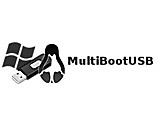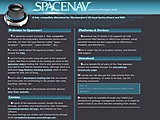 Overwitch is a set of JACK (JACK Audio Connection Kit) clients for Overbridge 2 devices. Since PipeWire is ABI compatible with JACK, Overwitch works with PipeWire too.
Overwitch is a set of JACK (JACK Audio Connection Kit) clients for Overbridge 2 devices. Since PipeWire is ABI compatible with JACK, Overwitch works with PipeWire too.
 libusb is a C library that provides generic access to USB devices. It is intended to be used by developers to facilitate the production of applications that communicate with USB hardware. It is portable: Using a single cross-platform API, it provides access to USB devices on Linux, macOS, Windows, etc. It is user-mode: No special privilege or elevation is required for the application to communicate with a device. It is version-agnostic: All versions of the USB protocol are supported.
libusb is a C library that provides generic access to USB devices. It is intended to be used by developers to facilitate the production of applications that communicate with USB hardware. It is portable: Using a single cross-platform API, it provides access to USB devices on Linux, macOS, Windows, etc. It is user-mode: No special privilege or elevation is required for the application to communicate with a device. It is version-agnostic: All versions of the USB protocol are supported.
 libgphoto2 is a set of libraries for previewing, retrieving, and capturing images from a range of supported digital cameras to your local hard drive. It does not support digital cameras based on the USB storage protocol, those can be mounted by Linux directly. The list of current cameras can be found on: http://gphoto.org/proj/libgphoto2/support.php or by running gphoto2 --list-cameras
libgphoto2 is a set of libraries for previewing, retrieving, and capturing images from a range of supported digital cameras to your local hard drive. It does not support digital cameras based on the USB storage protocol, those can be mounted by Linux directly. The list of current cameras can be found on: http://gphoto.org/proj/libgphoto2/support.php or by running gphoto2 --list-cameras
 distroflash.lua is a script that creates multiboot usb disks from linux distro .iso files. It requires libUseful, libUseful-lua, lua-5.3 and syslinux.
distroflash.lua is a script that creates multiboot usb disks from linux distro .iso files. It requires libUseful, libUseful-lua, lua-5.3 and syslinux.
 gPhoto (GNU Photo) is a command line tool for previewing, retrieving, and capturing imaggPhoto (GNU Photo) is a command line tool for previewing, retrieving, and capturing images from a range of supported digital cameras to your local hard drive. It does not support digital cameras based on the USB storage protocol, because those can be mounted by Linux directly. Find the list of supported cameras at the following URL: http://gphoto.org/proj/libgphoto2/support.php or by running gphoto2 --list
gPhoto (GNU Photo) is a command line tool for previewing, retrieving, and capturing imaggPhoto (GNU Photo) is a command line tool for previewing, retrieving, and capturing images from a range of supported digital cameras to your local hard drive. It does not support digital cameras based on the USB storage protocol, because those can be mounted by Linux directly. Find the list of supported cameras at the following URL: http://gphoto.org/proj/libgphoto2/support.php or by running gphoto2 --list
 MultiBootUSB can assemble multiple live Linux distributions on an USB disk. It presents a boot menu, and works non-destructively on flash disks, can even uninstall distributions again. It furthermore works cross-platform, and can create Linux USB boot disks from Windows.
MultiBootUSB can assemble multiple live Linux distributions on an USB disk. It presents a boot menu, and works non-destructively on flash disks, can even uninstall distributions again. It furthermore works cross-platform, and can create Linux USB boot disks from Windows.
 A free, compatible alternative for 3Dconnexion's 3D input device drivers and SDK.
A free, compatible alternative for 3Dconnexion's 3D input device drivers and SDK.
|